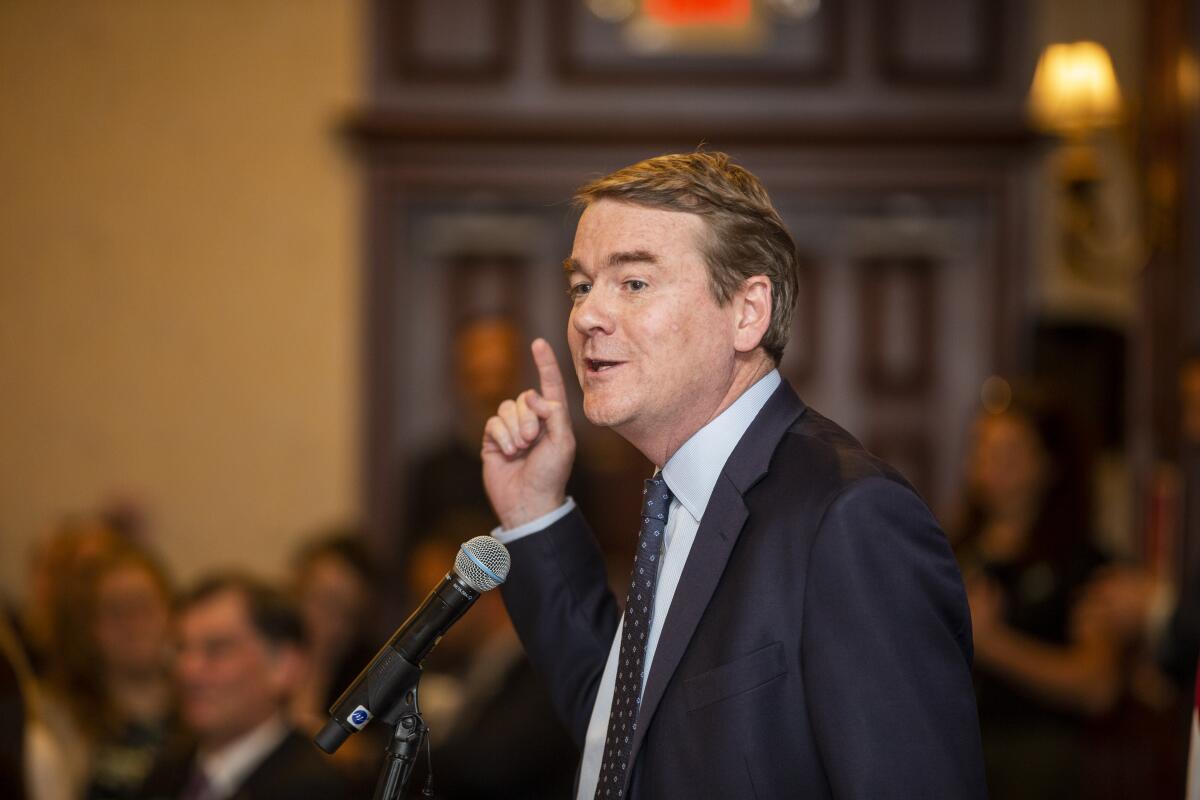Colorado Sen. Michael Bennet quits Democratic presidential race

Colorado Sen. Michael Bennet, who entered the Democratic presidential race as a long shot and never rose beyond also-ran status, ended his campaign Tuesday after the New Hampshire primary.
Bennet, 55, joined the contest relatively late, in May 2019, and offered little politically to stand apart in the sprawling field of contestants. There were nearly 20 other candidates in the race by the time he announced his bid, six of them fellow members of the U.S. Senate, and several staking themselves alongside Bennet on the right-hand side of the left-leaning field.
Bennet wasn’t even the sole Coloradan running when he joined the contest; former Gov. John Hickenlooper, who employed Bennet as his chief of staff when Hickenlooper was Denver mayor, was also seeking the White House. Hickenlooper abandoned his presidential bid in August and is now running for U.S. Senate.
Bennet’s hew-toward-the-middle candidacy was consistent with his reputation as a relatively moderate, straight-talking pragmatist in the Senate, where he has served — largely outside the national spotlight — since 2009.
Perhaps his most noteworthy contribution to the Democratic contest was his role as a skeptic of the party’s leftward tilt. He was particularly dubious of fellow Sens. Bernie Sanders of Vermont and Elizabeth Warren of Massachusetts and their support for “Medicare for all,” suggesting a government-administered healthcare system was untenable from both political and practical standpoints.
“Voters are sick and tired of politicians promising them things that they know they can’t deliver,” Bennet said after Warren issued a blueprint that penciled out details of her version. “Warren’s new numbers are simply not believable and have been contradicted by experts. Regardless of whether it’s $21 trillion or $31 trillion, this isn’t going to happen, and the American people need healthcare.”
Bennet entered the race with a national fundraising base from his time leading Democrats’ Senate campaign committee during the 2014 election cycle, but after qualifying for the first two presidential debates he failed to meet even the modest money-raising and poll-standing benchmarks needed to join subsequent forums.
Undaunted, he made a significant investment in time and advertising in Iowa and New Hampshire, the two states the begin the presidential balloting. One TV ad touted Bennet’s effort “tackling tough problems” as superintendent of Denver’s public schools and working to forge consensus in a polarized Washington. But he never gained traction, in Iowa or elsewhere around the country, with polls consistently showing Bennet garnering less than 1% support.
He was most recently reelected to the Senate in 2016, for a second term.
More to Read
Get the L.A. Times Politics newsletter
Deeply reported insights into legislation, politics and policy from Sacramento, Washington and beyond. In your inbox three times per week.
You may occasionally receive promotional content from the Los Angeles Times.











